Technology has become an integral part of our lives, transforming the way we communicate, work, learn, and entertain ourselves. From the moment we wake up to the time we go to bed, we are surrounded by technology in various forms.
Have you ever wondered how technology has changed the way we live our lives? From the way we communicate with each other to the way we access information, technology has revolutionized every aspect of modern society.
Technology has brought about significant changes in modern society, both positive and negative. On the one hand, it has improved communication, education, and healthcare, making our lives easier and more productive. On the other hand, it has led to job loss, cyberbullying, and technology addiction.
In this article, we will examine the impact of technology on modern society, discuss its benefits and drawbacks, and explore the future of technology.
The Role of Technology in Communication
Revolutionizing Communication Channels
Technology has revolutionized the way we communicate, breaking down barriers of distance and time. With the advent of smartphones, social media platforms, and instant messaging apps, we can connect with others around the world in an instant. Communication has become more efficient, convenient, and accessible, allowing us to stay connected with friends, family, and colleagues regardless of geographical boundaries.
Enabling Global Collaboration
Technology has also facilitated global collaboration, enabling teams from different parts of the world to work together seamlessly. Tools like video conferencing, cloud storage, and project management software have made it easier for individuals and organizations to collaborate on projects, share ideas, and exchange information. This has led to increased productivity, innovation, and the ability to tap into a global talent pool.
Transforming Social Interactions
Social media platforms have transformed the way we interact with others, both personally and professionally. We can connect with like-minded individuals, share our thoughts and experiences, and engage in meaningful discussions on various topics. Social media has also become a powerful tool for businesses, allowing them to reach a wider audience, build brand awareness, and engage with customers in real time.
The Impact of Technology on Education
Enhancing the Learning Experience
Technology has revolutionized the education sector by enhancing the learning experience for students of all ages. With the integration of technology in classrooms, students have access to a wealth of information at their fingertips. Interactive whiteboards, educational apps, and online learning platforms have made learning more engaging, personalized, and accessible. Students can now learn at their own pace, explore new subjects, and collaborate with classmates on virtual projects.
Bridging the Educational Divide
Technology has the potential to bridge the educational divide by providing equal opportunities for students regardless of their geographical location or socioeconomic background. Online courses and e-learning platforms have made education more accessible to those who may not have access to traditional educational institutions. This has opened up new avenues for lifelong learning, skills development, and career advancement.
Empowering Educators
Technology has also empowered educators by providing them with innovative tools and resources to enhance their teaching methods. Teachers can now create interactive lessons, track student progress, and provide personalized feedback using educational technology. This not only improves the efficiency of teaching but also allows educators to cater to the diverse needs of their students.
The Impact of Technology on Healthcare
Advancements in Medical Diagnosis and Treatment
Technology has led to significant advancements in medical diagnosis and treatment, improving patient outcomes and revolutionizing healthcare delivery. From electronic health records to telemedicine, technology has made it easier for healthcare professionals to access and share patient information, collaborate on treatment plans, and provide remote consultations. Medical devices and wearable technology have also empowered individuals to monitor their health in real time, leading to early detection and prevention of diseases.
Enhancing Patient Care and Safety
Technology has played a crucial role in enhancing patient care and safety. Electronic medication administration systems reduce the risk of medication errors, while automated monitoring systems provide real-time data on patient vital signs, alerting healthcare professionals to any abnormalities. Robotic surgery, artificial intelligence, and virtual reality have also transformed surgical procedures, making them more precise and reducing the risk of complications.
Improving Healthcare Access and Efficiency
Technology has improved healthcare access and efficiency by reducing wait times, eliminating geographical barriers, and streamlining administrative processes. Online appointment booking systems, telehealth services, and remote patient monitoring have made healthcare more accessible to individuals in remote areas or with mobility limitations. Digital health records and automated billing systems have also simplified administrative tasks, allowing healthcare providers to focus more on patient care.
The Impact of Technology on Entertainment
Transforming the Entertainment Industry
Technology has transformed the entertainment industry, revolutionizing the way we consume and interact with media. Streaming platforms like Netflix, Disney+, and Spotify have disrupted traditional distribution models, giving consumers access to a vast library of movies, TV shows, and music on demand. Virtual reality and augmented reality have taken immersive experiences to new heights, allowing us to step into virtual worlds and interact with digital content in unprecedented ways.
Empowering Content Creators
Technology has empowered content creators by providing them with affordable tools and platforms to showcase their talent and reach a global audience. Anyone with a smartphone and an internet connection can create and share content on platforms like YouTube, Instagram, and TikTok. This has democratized the entertainment industry, giving rise to new voices, diverse storytelling, and unique perspectives.
Personalizing the Entertainment Experience
Technology has also personalized the entertainment experience, allowing us to curate our content preferences and discover recommendations based on our interests. Algorithms and machine learning algorithms analyze our viewing habits, browsing history, and social interactions to provide personalized recommendations. This has transformed the way we discover and consume entertainment, ensuring that we are constantly engaged and entertained.
Challenges or Drawbacks of Technology
The impact of technology on modern society has undoubtedly brought numerous benefits and advancements. However, it is important to acknowledge that some potential challenges and drawbacks come along with this progress.
1. Privacy concerns
With the increasing use of technology, there is a growing concern about the privacy of individuals. Online platforms and applications collect vast amounts of personal data, which can be susceptible to breaches and misuse. This raises questions about data security, surveillance, and the ethical use of personal information.
2. Cybersecurity threats
As technology continues to advance, so do the capabilities of cybercriminals. The interconnectedness of devices and networks creates vulnerabilities that can be exploited by hackers. Cybersecurity threats, such as data breaches, ransomware attacks, and identity theft, pose significant risks to individuals, businesses, and even governments.
3. Social isolation and disconnection
While technology has made communication more accessible, it has also led to social isolation and disconnection. Excessive reliance on digital communication can impact face-to-face interactions, leading to a decline in social skills and a sense of disconnection from real-life relationships.
4. Job displacement and inequality
Automation and artificial intelligence have the potential to replace human labor in various industries. This can result in job displacement and increased economic inequality, as certain sectors and job roles become obsolete. It is crucial to address these challenges by fostering reskilling and upskilling opportunities for those affected by technological advancements.
5. Digital divide
The digital divide refers to the gap between individuals and communities who have access to technology and those who do not. Limited access to technology can hinder educational and economic opportunities, exacerbating existing social inequalities. Bridging the digital divide requires efforts to provide equal access to technology and digital literacy programs.
6. Information overload and misinformation
The abundance of information available on the internet can lead to information overload and difficulty in distinguishing credible sources from misinformation. This can have significant consequences on decision-making, public discourse, and the spread of false information.
7. Health concerns
The excessive use of technology, particularly screens, can have negative effects on physical and mental health. Sedentary behaviors, eye strain, sleep disturbances, and increased screen time have become prevalent concerns associated with technology’s impact on health.
8. Environmental impact
The production and disposal of technology devices contribute to electronic waste, which poses environmental challenges. The extraction of rare earth minerals for technology manufacturing and the energy consumption of data centers also have environmental implications.
Conclusion
Technology has had a profound impact on modern society, touching every aspect of our lives. It has revolutionized communication, transformed education, improved healthcare, and revolutionized the entertainment industry.
As technology continues to evolve, it will undoubtedly shape our future, opening up new possibilities and opportunities for innovation and growth. Individuals, organizations, and society as a whole need to embrace and harness the power of technology to create a better and more connected world.


